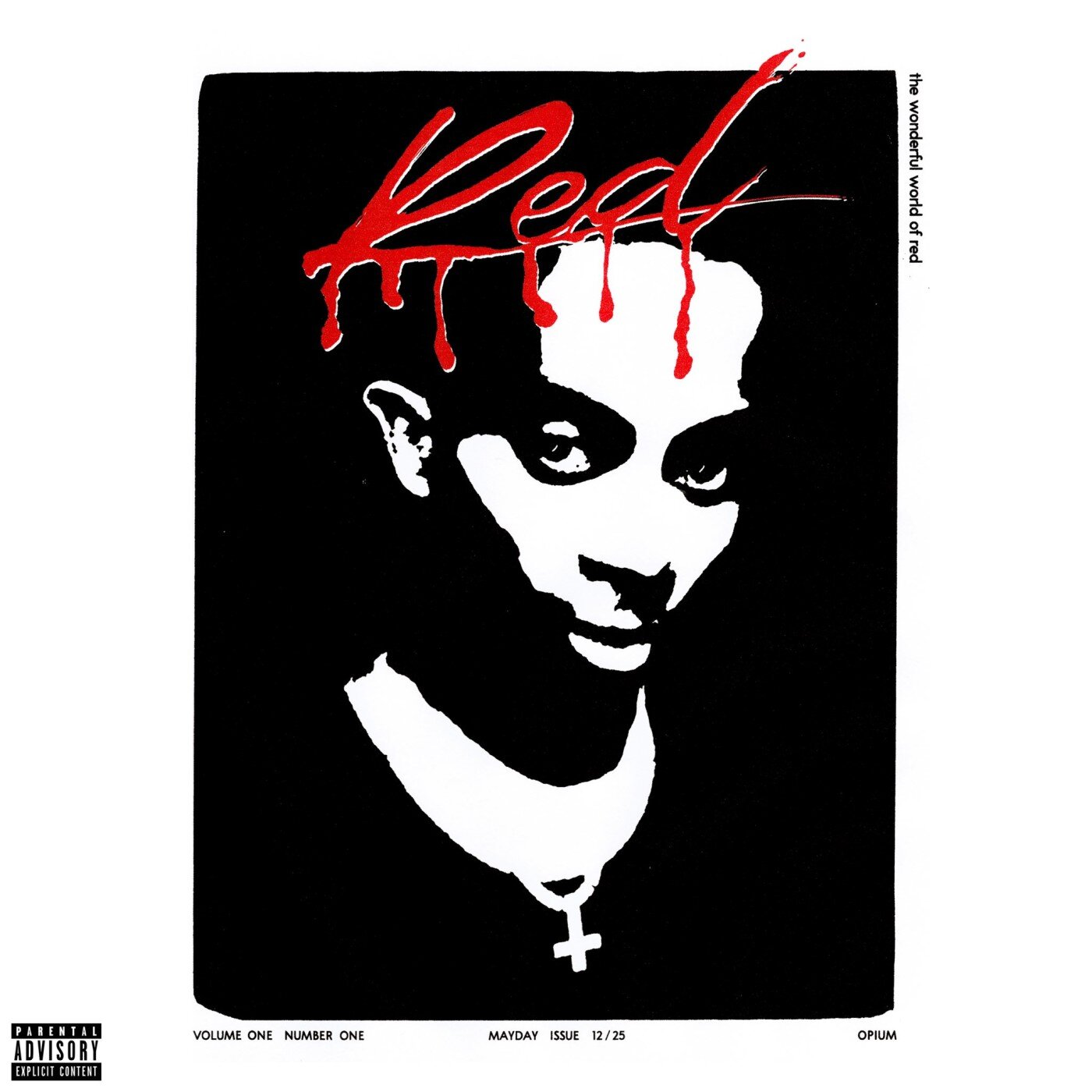Interscope • 2020
Playboi Carti Whole Lotta Red
Few rap releases in recent history have been as hotly anticipated as Playboi Carti’s Whole Lotta Red. He first teased the title of his sophomore album in 2018, sending SoundCloud rap diehards into a tizzy. When its earliest incarnation began to leak in pieces, however, the rapper scrapped the project entirely, leaving fans scrounging for crumbs. In the wake of its initial destruction, the project’s legend began to grow - several lists of the best Playboi Carti leaks held forth that it would be his best work yet, and the sudden announcement of its Christmas release last year felt like a mirage.
But even among his most dedicated followers, Whole Lotta Red has garnered a polarized reaction. It’s a considerably less polished effort than his mumble rap manifesto, 2018’s Die Lit, cramming twenty-four explosive tracks into its generous, hour-plus runtime. But all of the rapper’s charm is intact, and his voice remains a uniquely engrossing instrument - he stretches syllables into extended melodies, drilling repeated phrases into post-hypnotic suggestions. He drops several double take-worthy one-liners (he generated early buzz back in November with “New Tank”’s “I got me some thots / they thought I was gay”), but lyrics have always been somewhat of an afterthought for Carti. He’s unparalleled in his gift of making lines you wouldn’t blink twice at into dizzying mantras - on “JumpOutTheHouse,” he rotates the titular phrase until it loses all discernible meaning.
For an album two-and-a-half years in the making, Red’s haphazard aesthetic can feel alienating - several of the tracks here sound like they were finalized in a single take, and small inconsistencies like the bizarre five-second gap at the start of “Place” suggest a hasty scramble at getting the project out to the public. Red yields an executive producer tag to none other than Kanye West, whose increasingly unpredictable (if wildly inconsistent) output offers an unruly creative precedent here. But even in the shadow of giants - personal idols Future, Kid Cudi, and, yes, Kanye offer contributions - this is Carti’s show. He brings out the best in his collaborators, adorning their verses with syrupy ad-libs, melting them into his own singular vision. In its stylistic pivots from violent, distorted freestyles (“Stop Breathing”) to poppier experiments (“Slay3r,” “Control”), the album’s scattershot approach becomes part of its appeal.
What ultimately makes Red Carti’s most enthralling effort yet is its penchant for the rawer and more vulnerable. “Ever since my brother died,” he seethes on “Stop Breathing,” “I been thinking ‘bout homicide,” eyes bugged out and bloodshot. He wears his heart on his sleeve on “ILoveUIHateU” and closer “F33l Lik3 Dyin,” sounding uncharacteristically wounded and introspective - “don’t get too close,” he warns on the former, “what you don’t know / it won’t hurt you ‘cause you you don’t know.” On “Closer,” he sounds lovestruck and sincere - “basically, what I’m saying is I can’t change / but for you I would do things that… / maybe one day I’d get on my knees and give you a diamond ring.” These are new and enthralling modes for Carti, and a stark contrast to the chilling paranoia of cuts like “No Sl33p” (“when I go to sleep I dream ‘bout murder”).
Adding to its complicated reputation, Red lands in the middle of a muddy PR moment for the rapper. The heavy inclusion of satanic imagery in the album’s artwork and pre-release merch has turned heads, arguably by design. But the details of his crumbling relationship with Iggy Azalea has inspired more valid apprehension - on the same day as the album’s release, Azalea revealed that Carti missed the birth of his child, absorbed in his PlayStation 5 with Lil Uzi Vert. It’s a troubling peek into the rapper’s interpersonal world, one in which codeine, diamonds, and violence are a welcome distraction from deep suffering. It’s often a dark one, but Whole Lotta Red paints an absorbing, more human portrait of an artist whose image has always seemed just beyond earthbound. B-
